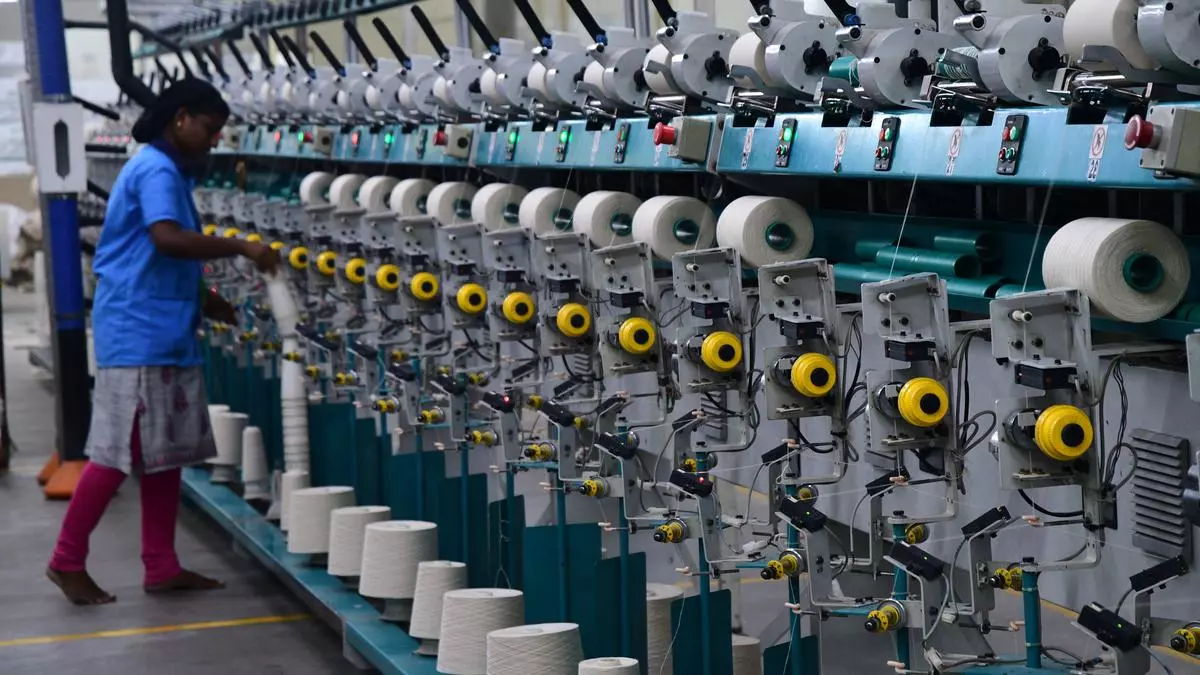Tamil Nadu spinning mills body seeks financial support from banks
With the textile industry going through a difficult time in view of the long war in Ukraine and the resulting economic crisis, the Tamil Nadu Spinning Mills Association (TASMA) has urged the Indian Banks Association (IBA) to provide financial support to the cash-strapped spinners. section.
In a letter to the secretary of the IBA member, TASMA President AP Appukutti requested an extension of a one-year moratorium on repayment of the principal amount tapped by spinning mills during the Covid period and conversion of three-year loans under ECLGS into six-year loans. He also called for the extension of the necessary financial assistance to relieve pressure on working capital, on a case-by-case basis.
Pointing out that the Indian spinning sector which is predominantly cotton has faced an unprecedented crisis over the past two years due to several factors, he said the main issue was the recession in various countries.
decrease in exports
Moreover, unavailability of raw materials at competitive prices [cotton price has been higher by 10-15 per cent due to the levy of 11 per cent import duty on cotton, disruption in man-made fibre raw material supply due to practical issues in implementing quality control orders (QCO)] This led to a 50 percent drop in cotton yarn exports, a 23 percent drop in total exports of cotton textiles, and an 18 percent drop in total textile and apparel products during the 2022-23 fiscal year.
The current price of cotton is €58,000 per candy (356 kg), the price of forty yarns is $235/kg and the cost of clean cotton is $194/kg. He pointed out that the factories are unable to fulfill their obligations to banks, cotton suppliers, electricity bills, and regular payments.
With energy charges in Tamil Nadu increasing twice since September, the spinning industry is unable to meet the rising costs when the recession is about to peak and fears things could get worse.
Absence of free trade agreements
The financial statements of the spinning mills were affected as the prices of yarn fell dramatically due to stagnant demand and Indian textile exports were also affected due to the lack of free trade agreements with major markets such as the European Union and the United States. As a result, the tariff on Indian textiles is higher compared to Pakistan, Bangladesh and Vietnam, Appokuti said.
Under the current situation, small and medium enterprises are unable to service their debts. The TASMA chief said that with the loan repayment cycle being extended during the onset of Covid, mills have been pushed into a position where they may have to file for bankruptcy.
In view of these developments, Tasma sought financial support from banks, especially since the spinning sector is highly dependent on capital, labor and energy.
“The financial stability of the spinning sector is absolutely necessary to maintain the global competitiveness of the textile and apparel industry, which provides employment opportunities for more than 110 million people, especially people living below the poverty line and women,” Abukuti said.
